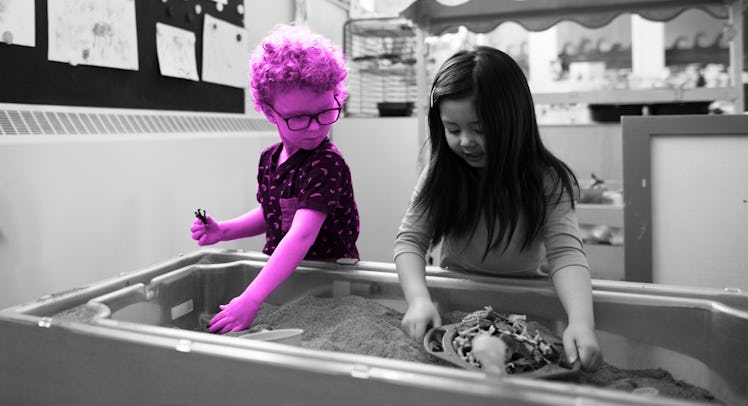Four in Five Parents Admit Their Kids Aren’t as Grateful as They Should Be
Ninety-six percent of parents agree parents should be taught gratitude, but how do we do that?

With the end of the year creeping up and another challenging year nearly behind us, many of us might be reflecting on everything we’re thankful for. But according to a new poll, four out of five parents admit that their kids aren’t as grateful as they probably should be.
A new national poll conducted by C.S. Mott Children’s Hospital in Michigan wanted to look into gratefulness, specifically when it comes to raising our kids. Researchers asked 1,125 parents who have at least one kid between the ages of 4 and 10 a variety of questions about gratitude, including how the family uses manners like saying “please” and “thank you” or if the kids participate in any volunteer work.
With the holiday season upon us, the results show that many parents want to prioritize teaching gratitude and gratefulness to their kids. And a lot of parents feel kids these days aren’t as grateful as they should be.
Taking a closer look at the numbers, the data shows that 81 percent of parents agree that kids today aren’t grateful for what they have. Fifty-eight percent of parents admit to being worried they’re giving their kids too much. In comparison, another 42 percent say they’re sometimes embarrassed by how selfish their kid acts.
One good thing in all of this is that nearly every parent (96 percent) agreed that kids could be taught gratitude. In addition, they have some strategies in mind to make this a more significant focus. Sixty-three percent of parents say their family has daily conversations about what they’re grateful for.
Seventy-six percent of parents rate teaching their kids gratitude as a high priority, 22 percent place it as a medium priority, and only 2 percent say it’s a low priority. Not surprisingly, parents who prioritize teaching their kids gratitude encourage learning with similar strategies.
Some strategies for teaching kids how to be grateful include encouraging kids to say “please” and “thank you,” which 88 percent of parents report their kids to say regularly. In addition, parents say having their kid do household chores teaches gratitude. In contrast, others encourage their kids to write thank-you cards, donate their time with volunteer work, or donate their toys, clothes, or money to others in need.
Sarah Clarke, co-director of the poll and research scientist at the University of Michigan, explained to CNN that parents need to do more than encourage basic manners to instill gratefulness in their kids. “My hope is a poll like this causes some parents to stop and think about, ‘Are we being purposeful about teaching our kids how to be grateful?'” she said.
“We ask a lot of parents. They have to do a lot. … It’s been a tough couple of years for kids, so it’s fine to cut kids some slack,” Sarah continued. “But don’t abandon altogether that parent responsibility of the other things you have to teach your kids and model.”
As we enter into the holiday season, there’s no better time to make gratefulness and giving a stronger family focus. Our kids learn quickly through modeling, so it’s an important reminder that we can all do more acts of kindness and appreciate what we have.
“It’s never too late to start. Thanksgiving and the whole holiday season is a really easy time to gets kids started,” Sarah said. “It is what we call the teachable moment.”
This article was originally published on